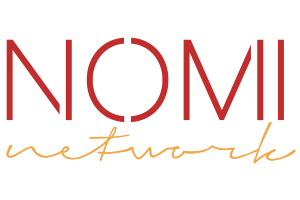In the Spirit of Fair Trade
The Fair Trade movement has its genesis with the efforts of Edna Ruth Byler. In 1946, she was working in Puerto Rico as a volunteer for the Mennonite Central Committee, teaching classes in embroidery and needlework to poor women. However, she didn’t think that the women were getting paid enough for the items they made. So, she brought some of their handiwork back to Pennsylvania, selling it from the trunk of her car and at church fairs, returning the proceeds directly to the women. Over the decades, the idea evolved and expanded, and eventually the Mennonite Central Committee founded the nonprofit organization, Ten Thousand Villages. Today, it is one of the largest fair-trade retailers of artisan crafts in the world. They have over 15 retail stores in the U.S. and Canada, and since 2008, their products can also be also purchased online through Ebay's World of Good.
The goal of Ten Thousand Villages, and the fair trade movement, is to alleviate poverty through the economic empowerment of poor people. The operational model of Ten Thousand Villages is to take goods from small businesses in poor countries and sell them in rich countries, at a price that is fair to the producers. Rather than work with already established, successful producers, Ten Thousand Villages works with small fledgling artisans who wouldn’t otherwise have a chance of succeeding in the international marketplace.
In his New York Times column of 3/13/2010, "Partying to Change the World," Nicholas Kristof describes a similar sequence of events that started in Uganda in 2004. A woman named Devin Hibbard had gone to Uganda visit her mother, Torkin Wakefield, a Peace Corp worker who was living at the time in Kampala, the capital. While taking a walk through a slum area, they each bought some colorful beaded necklaces from a woman who was selling them from her mud walled house. The woman made the beads by hand, from colorful recycled paper--mostly magazine advertisements and brochures. Later on, people in both Uganda and back in America complimented them on the beads. The two women realized that this presented an opportunity for them to be able to help poor women in Uganda start businesses to economically empower themselves. They started a nonprofit organization called, BeadforLife, to promote international entrepreneurship. They train bead makers on how to start and run a business. Most importantly, they help market the goods in the U.S., because enterprises like this cannot thrive without market demand from the developed world. The end result is that there are now about a thousand Ugandan women who once earned, on average, $1.00 a day or less, who are now making $200.00 per month. The women’s entire families have been lifted out of extreme poverty. They can now afford better nutrition, health care, and education for their children.
Nicholas Kristof says, “BeadforLife reflects several fascinating trends in the battle against global poverty. One is the increasing interest in using businesses and entrepreneurship to create jobs and a more sustainable economic liftoff. A second is a focus on women, because of evidence that they are more likely than men to invest business profits in their children’s education and health. A third is the growing attempt to engage American supporters by asking them to do something other than just writing checks.”
Nomi Network is part of the trend identified by Kristof. Nomi Network’s, “Buy Her Bag Not Her Body,” marketing campaign is designed to economically empower survivors of sex trafficking. The typical survivor of sex trafficking has little or no education, job skills, or marketable work experience. After they have been rehabilitated and reintegrated back in to society, there are few job opportunities available for them. Through their partnerships, Nomi Network currently employs 23 survivors in Cambodia and will soon be employing more. By providing survivors with job training, jobs, and a career path, they will not be forced by poverty to return to the sex trade. Moreover, the typical survivor employed by Nomi supports a family of four or five people. They are able to support not only themselves but help lift their entire families out of poverty.
Many people are aware of the poverty and exploitation of people in underdeveloped countries. Many think that they can’t do anything about it, but in fact, there is something they can do: they can choose to buy products for which they know that the producers are receiving a fair return for their labor. And if you buy a Nomi Network tote bag, you will have helped contribute to the eradication of sexual slavery and to helping survivors.
Stephen M. Bauer
The goal of Ten Thousand Villages, and the fair trade movement, is to alleviate poverty through the economic empowerment of poor people. The operational model of Ten Thousand Villages is to take goods from small businesses in poor countries and sell them in rich countries, at a price that is fair to the producers. Rather than work with already established, successful producers, Ten Thousand Villages works with small fledgling artisans who wouldn’t otherwise have a chance of succeeding in the international marketplace.
In his New York Times column of 3/13/2010, "Partying to Change the World," Nicholas Kristof describes a similar sequence of events that started in Uganda in 2004. A woman named Devin Hibbard had gone to Uganda visit her mother, Torkin Wakefield, a Peace Corp worker who was living at the time in Kampala, the capital. While taking a walk through a slum area, they each bought some colorful beaded necklaces from a woman who was selling them from her mud walled house. The woman made the beads by hand, from colorful recycled paper--mostly magazine advertisements and brochures. Later on, people in both Uganda and back in America complimented them on the beads. The two women realized that this presented an opportunity for them to be able to help poor women in Uganda start businesses to economically empower themselves. They started a nonprofit organization called, BeadforLife, to promote international entrepreneurship. They train bead makers on how to start and run a business. Most importantly, they help market the goods in the U.S., because enterprises like this cannot thrive without market demand from the developed world. The end result is that there are now about a thousand Ugandan women who once earned, on average, $1.00 a day or less, who are now making $200.00 per month. The women’s entire families have been lifted out of extreme poverty. They can now afford better nutrition, health care, and education for their children.
Nicholas Kristof says, “BeadforLife reflects several fascinating trends in the battle against global poverty. One is the increasing interest in using businesses and entrepreneurship to create jobs and a more sustainable economic liftoff. A second is a focus on women, because of evidence that they are more likely than men to invest business profits in their children’s education and health. A third is the growing attempt to engage American supporters by asking them to do something other than just writing checks.”
Nomi Network is part of the trend identified by Kristof. Nomi Network’s, “Buy Her Bag Not Her Body,” marketing campaign is designed to economically empower survivors of sex trafficking. The typical survivor of sex trafficking has little or no education, job skills, or marketable work experience. After they have been rehabilitated and reintegrated back in to society, there are few job opportunities available for them. Through their partnerships, Nomi Network currently employs 23 survivors in Cambodia and will soon be employing more. By providing survivors with job training, jobs, and a career path, they will not be forced by poverty to return to the sex trade. Moreover, the typical survivor employed by Nomi supports a family of four or five people. They are able to support not only themselves but help lift their entire families out of poverty.
Many people are aware of the poverty and exploitation of people in underdeveloped countries. Many think that they can’t do anything about it, but in fact, there is something they can do: they can choose to buy products for which they know that the producers are receiving a fair return for their labor. And if you buy a Nomi Network tote bag, you will have helped contribute to the eradication of sexual slavery and to helping survivors.
Stephen M. Bauer


Comments
Post a Comment